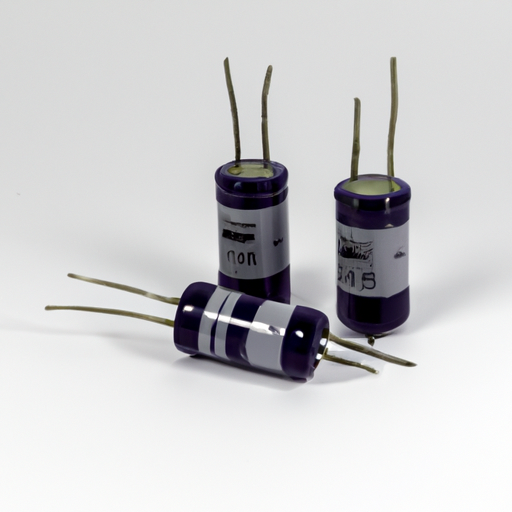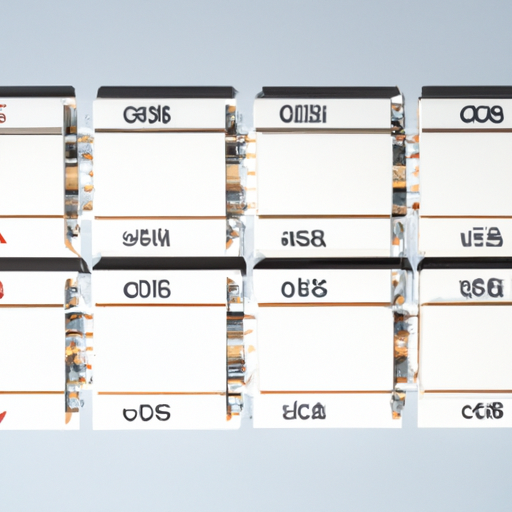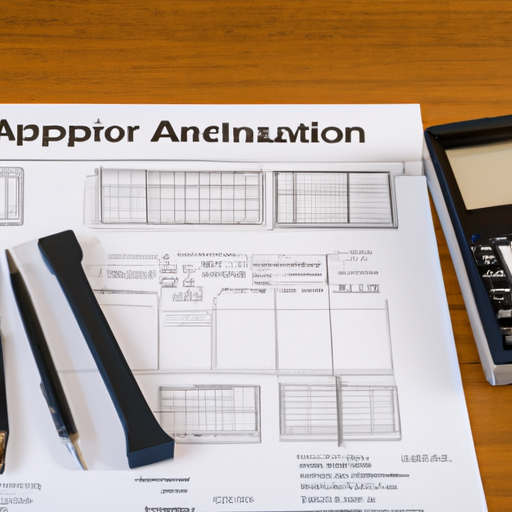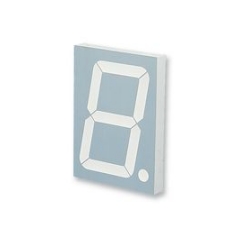What are the product features of automotive capacitors?
What are the Product Features of Automotive Capacitors?
I. Introduction
In the rapidly evolving automotive industry, the role of electronic components has become increasingly critical. Among these components, automotive capacitors play a vital role in ensuring the smooth operation of various systems within vehicles. Automotive capacitors are specialized capacitors designed to meet the unique demands of automotive applications, including high reliability, temperature stability, and compact size. This article aims to explore the different types of automotive capacitors, their key features, applications, and the challenges faced in their implementation.
II. Types of Automotive Capacitors
Automotive capacitors come in various types, each with distinct characteristics and applications. Understanding these types is essential for selecting the right capacitor for specific automotive needs.
A. Electrolytic Capacitors
Electrolytic capacitors are polarized capacitors that offer high capacitance values in a relatively small package. They are commonly used in power supply circuits due to their ability to store large amounts of energy.
1. **Characteristics**: Electrolytic capacitors typically have a high capacitance value, low equivalent series resistance (ESR), and are available in various voltage ratings. However, they are sensitive to temperature and can have a shorter lifespan compared to other types.
2. **Common Applications in Vehicles**: These capacitors are often found in power supply circuits, audio amplifiers, and energy storage systems in electric and hybrid vehicles.
B. Ceramic Capacitors
Ceramic capacitors are non-polarized capacitors made from ceramic materials. They are known for their stability and reliability.
1. **Characteristics**: Ceramic capacitors have a wide range of capacitance values, excellent temperature stability, and low ESR. They are also compact and lightweight, making them suitable for various applications.
2. **Common Applications in Vehicles**: These capacitors are frequently used in signal processing, filtering, and decoupling applications, particularly in communication systems and infotainment units.
C. Film Capacitors
Film capacitors are made from thin plastic films and are known for their durability and stability.
1. **Characteristics**: They offer low ESR, high voltage ratings, and excellent temperature stability. Film capacitors are also less prone to failure compared to electrolytic capacitors.
2. **Common Applications in Vehicles**: Film capacitors are often used in power electronics, audio systems, and applications requiring high reliability.
D. Tantalum Capacitors
Tantalum capacitors are known for their high capacitance values and compact size. They are made from tantalum metal and are often used in demanding applications.
1. **Characteristics**: Tantalum capacitors have a stable capacitance over a wide temperature range and low ESR. However, they are more expensive than other types of capacitors.
2. **Common Applications in Vehicles**: These capacitors are commonly used in power supply circuits, filtering applications, and in systems where space is a constraint.
III. Key Features of Automotive Capacitors
When selecting automotive capacitors, several key features must be considered to ensure optimal performance and reliability.
A. Voltage Rating
1. **Explanation of Voltage Rating**: The voltage rating of a capacitor indicates the maximum voltage it can handle without failing. Exceeding this rating can lead to catastrophic failure.
2. **Importance in Automotive Applications**: In automotive applications, where voltage levels can fluctuate significantly, selecting capacitors with appropriate voltage ratings is crucial for safety and performance.
B. Capacitance Value
1. **Definition and Significance**: Capacitance value refers to the amount of electrical charge a capacitor can store. It is measured in farads (F) and is a critical parameter in determining a capacitor's performance.
2. **How Capacitance Affects Performance**: Higher capacitance values can improve energy storage and filtering capabilities, making them essential in power supply circuits and signal processing applications.
C. Temperature Stability
1. **Importance of Temperature Tolerance**: Automotive environments can experience extreme temperature variations. Capacitors must maintain performance across these ranges to ensure reliability.
2. **Impact on Reliability and Performance**: Capacitors with good temperature stability are less likely to fail, ensuring the longevity of automotive systems.
D. Size and Form Factor
1. **Space Constraints in Automotive Design**: Modern vehicles are designed with limited space for electronic components. Therefore, the size and form factor of capacitors are critical considerations.
2. **Variations in Size and Their Implications**: Smaller capacitors can fit into tighter spaces, but they may have limitations in capacitance and voltage ratings. Balancing size with performance is essential.
E. ESR (Equivalent Series Resistance)
1. **Definition and Significance**: ESR is a measure of the resistance encountered by the current flowing through a capacitor. Lower ESR values indicate better performance and efficiency.
2. **How ESR Affects Performance and Efficiency**: High ESR can lead to energy loss in the form of heat, reducing the overall efficiency of the system. Therefore, selecting capacitors with low ESR is crucial for high-performance applications.
F. Lifespan and Reliability
1. **Factors Affecting Lifespan**: The lifespan of automotive capacitors can be influenced by factors such as temperature, voltage stress, and environmental conditions.
2. **Importance of Reliability in Automotive Applications**: Given the critical nature of automotive systems, capacitors must be reliable to prevent failures that could compromise safety and performance.
IV. Applications of Automotive Capacitors
Automotive capacitors are utilized in various applications, each requiring specific features and performance characteristics.
A. Power Supply Circuits
1. **Role in Stabilizing Voltage**: Capacitors are essential in power supply circuits, helping to stabilize voltage levels and smooth out fluctuations.
2. **Importance in Electric and Hybrid Vehicles**: In electric and hybrid vehicles, capacitors play a crucial role in energy storage and management, ensuring efficient operation of the powertrain.
B. Signal Processing
1. **Use in Audio Systems and Infotainment**: Capacitors are used in audio systems to filter signals and improve sound quality, as well as in infotainment systems for signal integrity.
2. **Role in Communication Systems**: In communication systems, capacitors help filter out noise and ensure clear signal transmission.
C. Energy Storage
1. **Function in Regenerative Braking Systems**: Capacitors are used in regenerative braking systems to store energy generated during braking, which can be reused to improve efficiency.
2. **Importance in Energy Recovery Systems**: In energy recovery systems, capacitors help capture and store energy that would otherwise be lost, enhancing overall vehicle efficiency.
D. Filtering and Noise Suppression
1. **Role in Reducing Electromagnetic Interference (EMI)**: Capacitors are used to filter out EMI, ensuring that electronic systems operate without interference.
2. **Importance in Maintaining Signal Integrity**: By suppressing noise, capacitors help maintain the integrity of signals in various automotive applications.
V. Challenges and Considerations
While automotive capacitors offer numerous benefits, several challenges must be addressed to ensure their effective implementation.
A. Environmental Factors
1. **Impact of Temperature and Humidity**: Automotive capacitors must withstand extreme temperatures and humidity levels, which can affect their performance and lifespan.
2. **Need for Robust Materials**: Selecting capacitors made from robust materials can help mitigate the effects of environmental factors.
B. Cost vs. Performance
1. **Balancing Budget Constraints with Quality**: Manufacturers must balance the cost of capacitors with their performance characteristics to meet budget constraints while ensuring quality.
2. **Long-term Value Considerations**: Investing in high-quality capacitors can lead to long-term savings by reducing the likelihood of failures and maintenance costs.
C. Technological Advancements
1. **Innovations in Capacitor Technology**: Ongoing advancements in capacitor technology are leading to the development of more efficient and reliable components.
2. **Future Trends in Automotive Applications**: As vehicles become more electrified and connected, the demand for advanced capacitors will continue to grow, driving innovation in the industry.
VI. Conclusion
In conclusion, automotive capacitors are essential components that play a critical role in the performance and reliability of modern vehicles. Understanding the different types of capacitors, their key features, and applications is crucial for selecting the right components for automotive systems. As the industry continues to evolve, the importance of high-quality, reliable capacitors will only increase, paving the way for innovations that enhance vehicle performance and efficiency.
VII. References
A. Suggested readings and resources for further exploration include industry publications, technical papers, and manufacturer datasheets on automotive capacitors.
B. Industry standards and guidelines related to automotive capacitors can be found through organizations such as the Society of Automotive Engineers (SAE) and the International Electrotechnical Commission (IEC).







